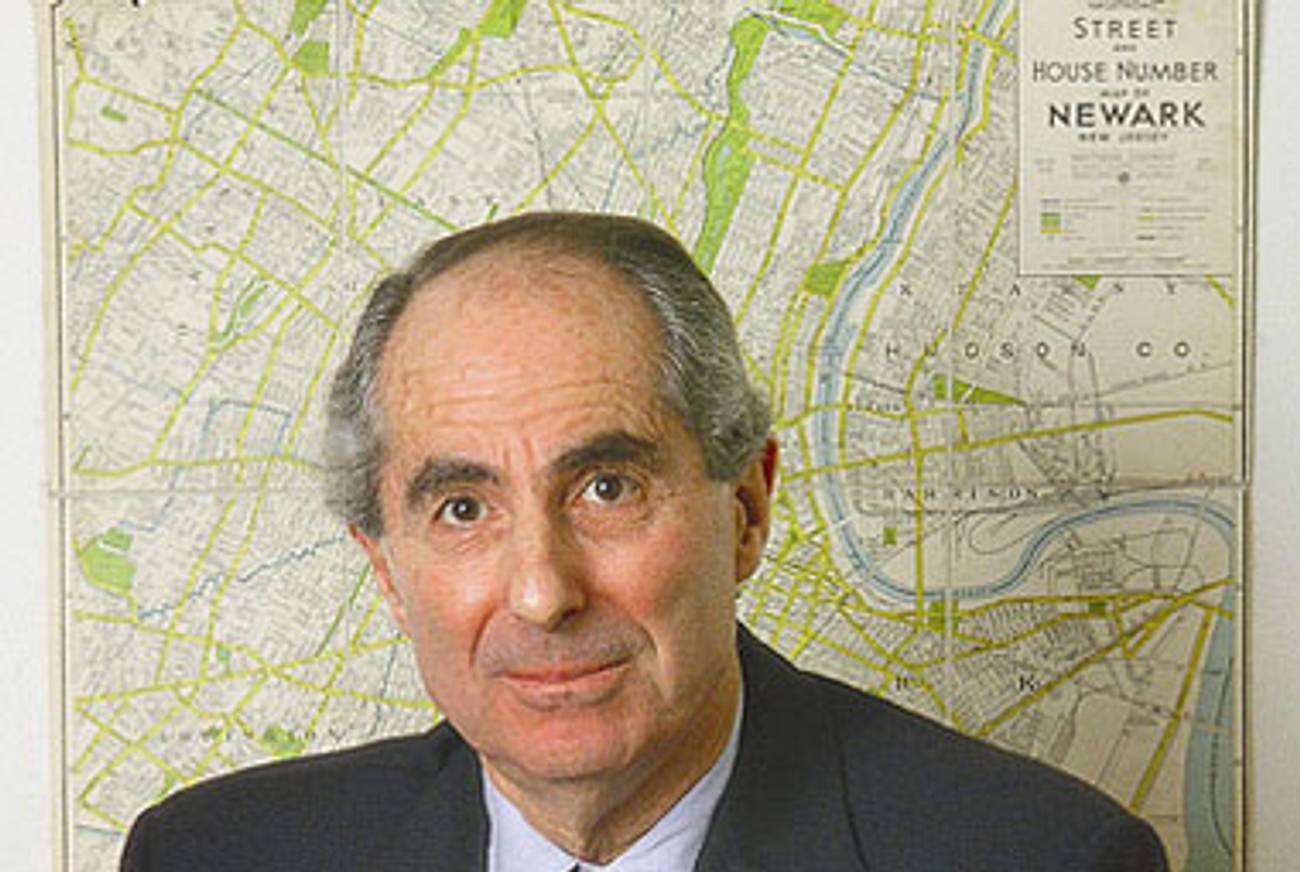Roth Wins British Prize Amid Controversy
The first American and Jew to win international award is lambasted by one judge




Jewish-American novelist Philip Roth became the fourth person and first American to win a Man Booker International Prize, a biennial award. Unlike its annual and more famous cousin, the Man Booker Prize, the Man Booker International is given to an author for lifetime achievement, not for a single novel from that year; and those eligible are any authors who write in English or whose works are widely available in English, and not those who are from Britain or its commonwealths.
But it wouldn’t be Roth if there weren’t controversy, and, duly, the third member of the three-member panel that awarded the prize to Roth angrily withdrew from the panel, saying that Roth “goes on and on and on about the same subject in almost every book,” and adding, “It’s as though he’s sitting on your face and you can’t breathe.” Whoa there. What’s going on here?
Quite a bit. The New Yorker‘s Macy Halford does a superb job laying it out. The odd judge out, Carmen Callil, is not merely not a fan of the Zuckerberg books. She is the founder of Virago Press, a British house which is the largest publisher in the world dedicated to bringing out women’s writing. Hence, perhaps, “sitting on your face”—a freighted image that implicitly conjures charges of misogyny and/or of an overreliance of sexual scatology (both of which are charges that have been levied plentifully at Roth in the past). Moreover, Halford notes, in 1996 Virago published the English actress Claire Bloom’s memoir, which included a detailed account of her failed marriage to Roth; Roth later fictionalized the experience of having your ex-wife write a memoir about your break-up in his novel I Married A Communist (which is also the name of the ex-wife’s memoir in the book; it’s set in the 1950s, during the Red Scare). “It’s perhaps inevitable that today’s Prize announcement would have been met with drama of some sort,” Halford argues. “But it’s also ridiculous: Agreeing to serve as a judge on a panel with two other people means agreeing to respect the decision of the majority, especially if one has known for months that the decision was a possibility.” As we say on the Internet: Co-sign.
Finally, there is the controversy surrounding the Man Booker International itself, which was created last decade in response to the criticism that some of the best English-language writers—including, of course, American ones—are ineligible for the Man Booker. Being the first American to win this prize may have forced forth anxiety in Britain over whether they are still masters of the English language. Ironically, Roth has long been an outspoken defender and lover of that language, who once, upon receiving an award from the YIVO Institute for Jewish Research—the “Y” stands for “Yiddish”—made a point of acknowledging that he was being honored “as an English writer for his achievement in English.”
Did I mention that Roth is speaking at YIVO tonight? Oh, yes, that. Check The Scroll tomorrow morning for a report.
Philip Roth Wins Man Booker International Prize in Disputed Decision [ArtsBeat]
Philip Roth and the Booker Judge [The Book Bench]
Marc Tracy is a staff writer at The New Republic, and was previously a staff writer at Tablet. He tweets @marcatracy.